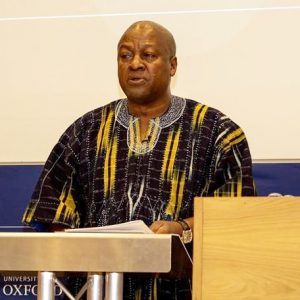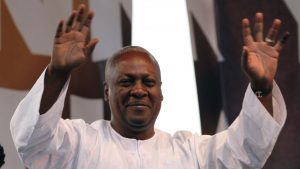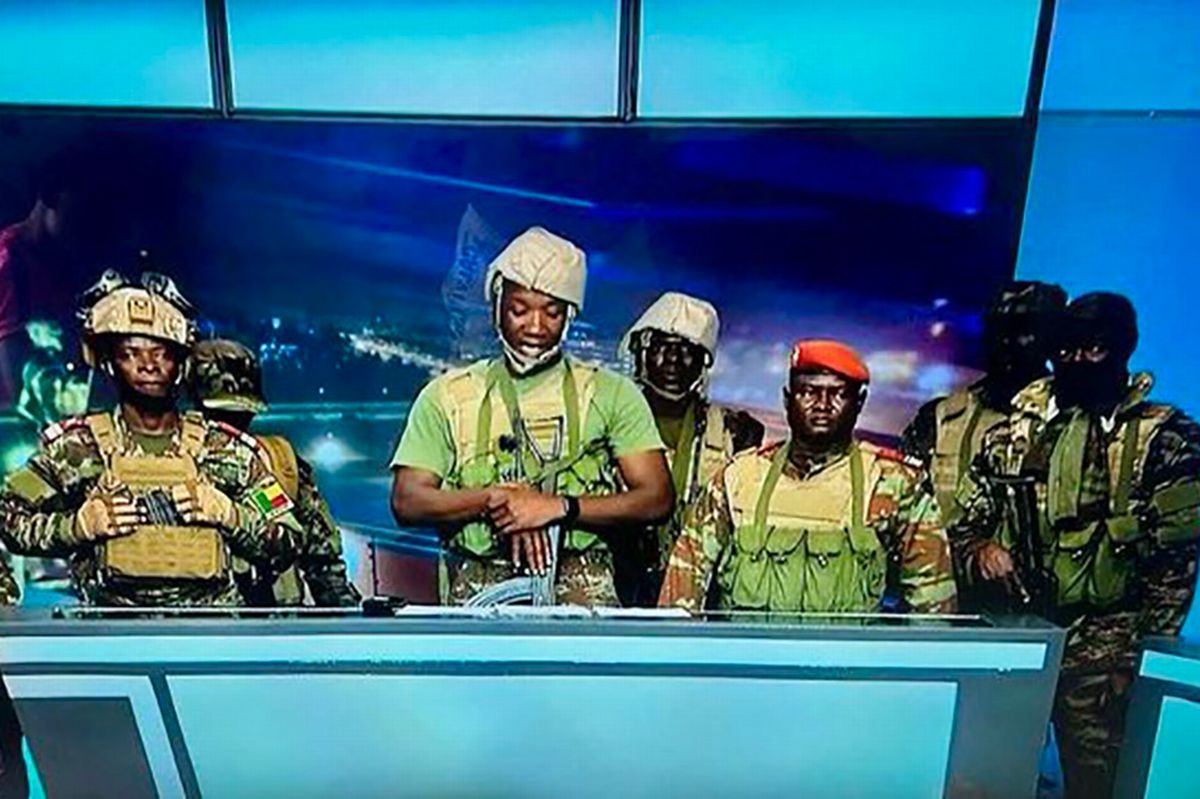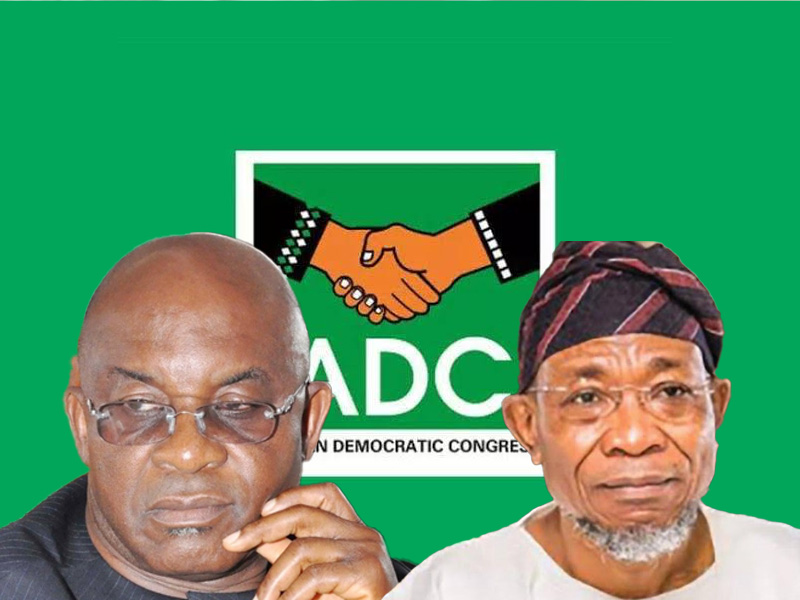Headlines
Ghana Decides: Why Ghanaians Want Mahama Back As President

By Eric Elezuo
Today, John Dramani Mahama is addressed as former president; after December 7, however, there is every tendency that he would be addressed as president-elect, and by January, he would resume the full status of Mr. President. That describes the extent the people of Ghana are desperate to return him to office, after he lost the election in 2016; a situation not just a cross section of Ghanaians have regretted four years down the line.
Former President of Ghana, Mr. John Dramani Mahama, is not a stranger when it comes to churning out people oriented programmes and initiatives. During his days as minister, vice president and subsequently, the president, Mahama’s landmark achievements have remained a reference point to administrators and would-be administrators. His feats have not escaped discerning minds and eyes, who have showered him with accolades from home and abroad, thus necessitating the loud clamour for citizens of Ghana from all walks of life to have him back on the seat of power. Mahama’s larger than life existence gave him a one in a million recognition when Nigeria’s premier private university, the Igbinedion University, Okada, Edo State, on November 24, 2018 conferred him with an honorary doctorate degree for his foresightedness, infrastructural development and general achievements which have affected humanity positively.
Four years after leaving office, Mahama’s image has continued to bestride Ghana’s political landscape like a colossus, which he rightly is. Matters are made more pronounced even as his successor, President Nana Akufo-Addo, has been seen by many as living far below standard and expectation. They argued that the NPP man is yet to record any notable achievement to his name. In fact, most people have credited the cut throat business levy of about a million dollars against foreign business owners in Ghana, who are mostly Africans, as Akufo-Addo’s major stride so far.
To many, it is therefore, a done deal that Mahama is returning to the presidential seat come January 2021. His choice of a female deputy in the person of Naana Jane Opoku-Agyemang, has further boosted the technocrat’s chances of reclaiming his 2016 lost mandate.
A politician of great repute, Mahama was born on November 29, 1958, and has been privileged to serve in various civil and political capacities, culminating in holding the highest office in the land from July 24, 2012 to January 7, 2017.
Mahama started his primary education at the Accra Newtown Experimental School (ANT1) and completed his O’levels education at Achimota School and his A’levels education at Ghana Secondary School (Tamale, Northern region). He proceeded to the University of Ghana, Legon, receiving a bachelor’s degree in history in 1981 and a postgraduate diploma in communication studies in 1986. As a student, he was a member of Commonwealth Hall (Legon). He also studied at the Institute of Social Sciences in Moscow in the Soviet Union, specializing in Social Psychology; he obtained a postgraduate degree in 1988.

His catalogue of enviable services include serving as Vice President of Ghana from 2009 to 2012, and took office as President on July 24, 2012 following the death of his predecessor, John Atta Mills. He was also a Member of Parliament from 1997 to 2009 and Minister of Communications from 1998 to 2001. A communication expert, historian, and writer, Mahama is a member of the National Democratic Congress.
Though he was born in Damongo in the Damango-Daboya constituency of Northern region, he is a member of the Gonja ethnic group, and hails from Bole in the Northern region. His father, Emmanuel Adama Mahama, a wealthy rice farmer and teacher, was the first Member of Parliament for the West Gonja constituency and the first Regional Commissioner of the Northern Region during the First Republic under Ghana’s first president, Kwame Nkrumah.
After completing his undergraduate education, Mahama taught History at the secondary school level for a few years. Upon his return to Ghana after studying in Moscow, he worked as the Information, Culture and Research Officer at the Embassy of Japan in Accra between 1991 and 1995. From there he moved to the anti-poverty non-governmental organisation (NGO) Plan International’s Ghana Country Office, where he worked as International Relations, Sponsorship Communications and Grants Manager between 1995 and 1996.
In 1993, he participated in a professional training course for Overseas Public Relations Staff, organized by the Japanese Ministry of Foreign Affairs in Tokyo. He also participated in a management development course organized by Plan International (RESA) in Nairobi, Kenya.
Mahama’s first triumph in politics came in 1996 when he was elected to the Parliament of Ghana to represent the Bole/Bamboi Constituency for a four-year term. In April 1997, he was appointed Deputy Minister of Communications, and barely a year later, was promoted to the post of Minister of Communications, and served until January 2001. During the period under review, he also served as the Chairman of the National Communications Authority, in which capacity he played a key role in stabilising Ghana’s telecommunications sector after it was deregulated in 1997.
As a minister, he was a founding member of the Ghana AIDS Commission, a member of the implementation committee of the 2000 National Population Census and a deputy chairman of the Publicity Committee for the re-introduction of the Value Added Tax (VAT).
In 2000, Mahama was re-elected for another four-year term as the Member of Parliament for the Bole/Bamboi Constituency. He was again re-elected in 2004 for a third term. From 2001 to 2004, Mahama served as the Minority Parliamentary Spokesman for Communications. In 2002, he was appointed the Director of Communications for the NDC. That same year, he served as a member of the team of International Observers selected to monitor Zimbabwe’s Parliamentary Elections. As an MP, he was a member of Standing Orders Committee as well as the Transport, Industry, Energy, Communications, Science and Technology Committee of Parliament.

HE John Dramani Mahama, former President of Ghana
Continuing to expand his interest and involvement in international affairs, in 2003, Mahama became a member of the Pan-African Parliament, serving as the Chairperson of the West African Caucus until 2011. He was also a member of European and Pan African Parliaments’ Ad-hoc Committee on Cooperation. In 2005 he was, additionally, appointed the Minority Spokesman for Foreign Affairs. He is a member of the UNDP Advisory Committee on Conflict Resolution in Ghana.
As Vice-President, he served as the Chairman of the National Economic Management Team, the Armed Forces Council of Ghana, the Decentralisation and Implementation Committee and the Police Council of Ghana in this capacity. Mahama is full of experience, having served at all levels of poltical office, and he brought them all to bear as President, giving out a sterling performance that could only compare with the very best. He was the first, and remains the only Ghana president to have been born after independence.
On March 30, 2014, he was elected to preside over ECOWAS. On June 26, 2014, he was elected Chairperson of the African Union’s (AU’s) High-Level African Trade Committee (HATC).
On January 21, 2016 on the occasion of the World Economic Forum in Davos, Mahama became co-chair of the Sustainable Development Goals Advocates group which consists of 17 eminent persons assisting the UN Secretary-General in the campaign to achieve the Sustainable Development Goals (SDGs) that world leaders unanimously adopted in September 2015.
He honourably left office on January 7, 2017 after losing to main opposition leader, Nana Akufo-Addo, in the general election.
In December 2016, he was part of part of the ECOWAS mediation team to resolve the post-election political impasse in The Gambia between the defeated incumbent, Yahya Jammeh and declared winner, Adama Barrow.

Mahama, now a member of the Assemblies of God, is married to Lordina Mahama, and they are blessed with five children namely Shafik, Shahid, Sharaf, Jesse and Farida.
Over the course of his career, Mahama has written for several newspapers and other publications both locally and internationally. Additionally, he is also a devotee of Afrobeat music, especially that of Fela Kuti.
Mahama is not new to awards and honours as his good works have paved a broad way for recognitions. He received an honorary doctorate in the field of Public Administration, from the Ekiti State University of Nigeria, formerly affiliated to the Obafemi Awolowo University in “recognition of his politico-socio economic development of Ghana and Africa at various stages of his political career. Later, the same university passed a resolution to name its Faculty of Management Science after him.
He was also honoured by the Cuban government with the Friendship Medal for his relentless advocacy for the Cuban cause.
Also, The General Council of Assemblies of God, Ghana, has honoured him with its Daniel Award.
The Graduate School of Governance and Leadership also awarded him the African Servant Leadership Award while the Institute of Public Relations recognized Mahama with a prize for his leadership acumen and technocratic flair.
In 2013, the Forum for Agricultural Research in Africa (FARA) conferred on Mahama the Africa Award for Excellence in Food Security and Poverty Reduction.
In March 2016, University of Aberdeen held a special convocation to confer him an honorary degree of Doctors of Laws (LLD).
In December 2016, he was honoured with a Life time award by Ovation Media Group during its yearly Ovation Carol.

A Bill Gates Fellow, Mahama was awarded the Great Cross of the National Order of Benin, the highest award in Benin, by President Yayi Boni.
In February 2017, few weeks after leaving office, Mahama received the 2016 African Political Leader of the Year Award from the African Leadership Magazine in South Africa.
Mahama has touted the achievements of his government in the areas of power, roads, the economy, water and sanitation. While delivering his final State of the Nation Address to Parliament, he said the government had extended electricity coverage, increased water supply and improved roads.
As president, he deployed emergency plants and sped up the completion of ongoing plants resulting in the addition of more than 800 megawatts (MW) of power over an 18-month period. That, and many more had helped to stabilise the power situation in Ghana.
Working on the standard mantra of achieving “water for all by the year 2025”, Mahama put in extra effort to achieve the target well in advance of the set date by increasing investment in the provision of clean drinking water, citing of boreholes, small town water systems and major urban water treatment. Consequently, by the end of 2015, excess of 76 per cent of both rural and urban residents have access to potable water.
President Mahama contended that his tenure of office had seen some of the most massive investments in the road sector in the history of the country.
While he completed road projects he inherited, such as the Achimota-Ofankor, Awoshie-Pokuase, Sofoline and Tetteh Quarshie-Adenta, he also commenced and completed the Kwame Nkrumah Interchange, fast-tracked the construction and opening of the Kasoa overhead bridge, completed the Airport Hills/Burma Camp network of roads, as well as the 37-El Wak-Trade Fair road and a host of others.
His trail of achievements are endless. Mahama is just another name for administrative excellence!
There is no gainsaying therefore, that when the Ghanaian populace steps out to the polling booths come December 7, all eyes and thumbs would be directed to #2 on the ballot paper.
Headlines
Leader of Failed Benin Republic Coup Reportedly Seeks Refuge in Togo

The leader of a failed coup in Benin Republic, Colonel Tigri Pascal, has reportedly sought refuge in neighbouring Togo.
Soldiers briefly took control of Benin’s State television station on Sunday morning and claimed they had deposed President Patrice Talon, though Benin’s armed forces, backed by Nigerian firepower and French intelligence and logistical support, thwarted the attempt.
The soldiers identified Colonel Pascal as the coup leader, while his whereabouts had previously been unknown.
However, a senior Benin government official told Reuters on Wednesday that the soldier is in Togo.
The government, however, called for Pascal’s immediate extradition.
Togo’s foreign ministry did not immediately respond to a request for comment.
A Benin government statement on Monday said coup plotters attempted to seize Talon, and came close enough for the president to witness violent clashes first-hand.
The statement added that they also managed to kidnap two senior military officials who were released on Monday morning.
A Benin Republic government’s spokesperson, Wilfried Leandre Houngbedji, said on Sunday that 14 people had been arrested in connection with the coup attempt.
Reuters
Headlines
Insecurity: ADC Urges Tinubu to Act Decisively As He Did in Benin Republic

The African Democratic Congress (ADC) has urged President Bola Tinubu to demonstrate the same speed and firmness he showed while responding to the recent coup attempt in the Benin Republic, in tackling the worsening insecurity across Nigeria.
The party said the government’s rapid deployment of support to the neighbouring country sharply contrasts with its slow and inconsistent approach to confronting banditry, terrorism and violent crime that continue to devastate communities nationwide.
On Sunday, a group of soldiers announced a takeover of the government in the Francophone West African country.
Hours later, the Benin Republic presidency said President Patrice Talon was safe, adding that the “regular” army was regaining control.
The Nigerian Air Force (NAF) also assisted the Beninese government by carrying out combat air patrols around Cotonou, the Benin Republic.
In a statement on Monday, Bolaji Abdullahi, national publicity secretary, ADC, urged the federal government to show similar decisiveness in tackling insurgency, banditry, and violent crime across Nigeria.
Abdullahi said the government’s ability to act quickly abroad highlights its slow and haphazard response to domestic insecurity, which is devastating communities.
He also expressed concern about democratic reversals in the West African region and stressed that the best safeguard for democracy is good governance anchored on improved livelihoods and tolerance for opposition.
“The African Democratic Congress (ADC) welcomes Nigeria’s swift intervention in the Benin Republic following the announcement of a coup attempt.
“We commend the Federal Government for acting promptly to defend constitutional order in our neighbourhood. However, the government must align this intervention with the legal provisions of our Constitution.
“While the unilateral action taken by the President might have been expedient, it still requires ratification by the National Assembly for military deployment outside Nigeria,” the statement read.
The ADC spokesperson questioned why Nigeria failed to act swiftly in Guinea-Bissau, even when a former president, Dr. Goodluck Jonathan, was at risk.
He added that the government’s rapid response abroad raises concerns about its handling of domestic insecurity.
“Consistency in our mode of operations, especially in foreign interventions, is essential for any country that seeks to lead the sub-region on democracy and stability.
“If Nigeria could respond decisively to threats across our borders, why has it failed to act with similar urgency at home? Banditry, terrorism, and violent crime continue to hold communities hostage, displace families, abduct children, and parade themselves openly,” Abdullahi said.
He noted that defending democracy begins with protecting Nigerian lives, restoring security, and rebuilding trust between citizens and the state.
“The best safeguard against military adventurism is for elected governments to make democracy meaningful by improving citizens’ lives and allowing opposition and alternative voices to thrive,” he said.
Headlines
Adeleke Joins Accord Party to Actualise Reelection Bid

Osun State governor, Ademola Adeleke, on Tuesday, announced that he has joined the Accord Party as a new platform to seek re-election in August next year.
Adeleke made the announcement in a post on his verified X handle on Tuesday, days after resigning from the Peoples’ Democratic Party (PDP).
The governor disclosed that he joined the Accord Party more than a month ago, precisely November 6, 2025, as a platform to seek re-election in 2026.
He said the decision was after weeks of consultation and deliberations with stakeholders and opinion leaders.
Governor Adeleke noted that he opted for the Accord Party because its mission of welfarism aligns with his focus on citizens and workers’ welfare.
“Stakeholders and residents of Osun State are aware of why we are taking this important decision. We intend to pursue a second term in office on the platform of the Accord Party to complete ongoing delivery of good governance and democratic dividends, which have been applauded at home and abroad.
“We opted for the Accord Party because its mission of welfarism aligns with our passionate focus on citizens and workers’ welfare. Since I joined, I have been fascinated by the philosophy of this great party. The primary essence of a government is the welfare and well-being of the people.
“I welcome the leadership of the Accord from the National into Osun State. You are now part of us as I am also now part of you. We are united in progress and good intentions for the good people of Osun State and Nigeria at large.
“Our task is to sustain a united front as we prepare for future elections. We have a duty to ensure an inclusive leadership where the interests of all groups are cared for. Our party, Accord Party, is here to take over Osun governance and sustain the delivery of good governance in our dear state,” the statement read in part.
On December 2, Governor Adeleke announced his resignation from the PDP, the political platform under which he rose to prominence as senator and later governor.
In a letter he addressed to the PDP Chairman of Ward 2, Sagba Abogunde, in Ede North Local Government, Osun State, Adeleke cited the ongoing crisis within the PDP’s national leadership as the reason for his departure.
The governor expressed gratitude to the party for providing him the platform to serve, first as Senator representing Osun West (2017–2019) and later as governor of the State.






